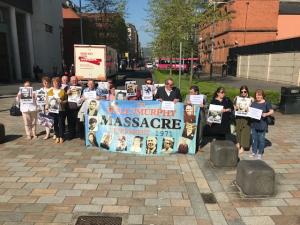
By Rebecca Black
The former head of the British Army has insisted there was a gun battle between the IRA and soldiers at Ballymurphy in 1971.
General Sir Mike Jackson, 75, was a captain in the Parachute Regiment on deployment in Belfast at the time.
He described his role in August 1971 as community relations and press liaison.
Sir Mike was giving evidence to an inquest at Belfast Coroner's Court into the deaths of 10 civilians, including a mother of eight and a Catholic priest, across three days from August 9 to 11 1971.
Two men - John Laverty and Joseph Corr - were killed in the early hours of August 11.
Sir Mike told a fresh inquest into their deaths that he was part of an Army movement down Whiterock Road towards Springfield Road in the early hours of August 11, aimed at dismantling barricades.
He recalled a gun battle between the Army and the IRA which he said lasted two to three hours and involved 20 gunmen.
While he did not see the battle, he said he heard the shots, including the "distinctive thumping noise of a Thompson submachine gun", a weapon then associated with the IRA.
"I have absolutely no doubt that the IRA were firing on soldiers and soldiers were firing on the IRA," he said.
📽 Carmel Quinn who’s brother John Laverty was among those killed in the 1971 Ballymurphy massacre says General Sir Mike Jackson must take responsibility for the actions of soldiers that day. He’s giving evidence in court today at the inquest. pic.twitter.com/kJ4AdDCDIo
— Q Radio News (@qnewsdesk) May 30, 2019
Claims that IRA gunmen were in the area at the time have been disputed during the inquest hearings.
A newspaper article published later on August 11 described Mr Laverty and Mr Corr as gunmen.
Their families have insisted they were not gunmen. The inquest heard that guns were not found when their bodies were recovered.
Sir Mike told the inquest he accepted it was likely he was a captain quoted by the newspaper, although he did not recall giving the interview.
Pressed on why the pair had been described as gunmen, Sir Mike said he would have been fed information from soldiers on the ground, by radio or face to face.
"In retrospect, of course I should have said 'alleged'," Sir Mike told the inquest.
The shootings at Ballymurphy came following the introduction by the Stormont administration of the controversial policy of internment without trial.
Sir Mike added: "Let me say to the families who so long ago lost their loved ones: for me it's a tragedy. It's a tragedy which is hugely regrettable but I would also say that anybody who loses their lives as a result of violent conflict is also a tragedy.
"I too have lost friends, so be it. My sympathies to you and I'm sorry that it is only now after so long that you feel you can come to terms."
🎥 Sir Mike Jackson, Head of the parachute regiment in Northern Ireland during the troubles, is to give evidence in court today at the Ballymurphy inquest. Families say they’re feeling apprehensive but keen to hear Mr Jackson’s version of events. pic.twitter.com/ud6tO8Vnki
— Q Radio News (@qnewsdesk) May 30, 2019
Sir Mike also told the inquest the British Army does not "do conspiracies".
He made the comment in response to questioning from Michael Mansfield QC, counsel for the family of Mr Corr.
Mr Mansfield put to Sir Mike that there had been an attempt to cover up the shooting of two civilians on August 11.
Sir Mike responded: "It is a preposterous accusation to make which would require a huge number of people to be part of. It simply does not add up.
"It may be there was a breakdown in procedure, it may be that the whole system was overwhelmed by the mayhem of that week, I don't know.
"But I do know we (British Army) don't do conspiracies."
Representatives from families of several of those killed by the Parachute Regiment were in the public gallery at the inquest on Thursday.


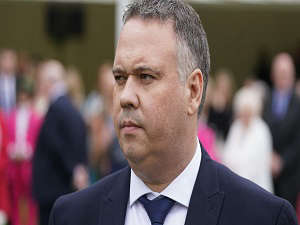 New IRA had planned earlier attack on detective John Caldwell, court told
New IRA had planned earlier attack on detective John Caldwell, court told
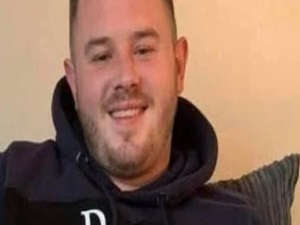 Man in court over murder of Stephen Brannigan and attack on priest in church
Man in court over murder of Stephen Brannigan and attack on priest in church
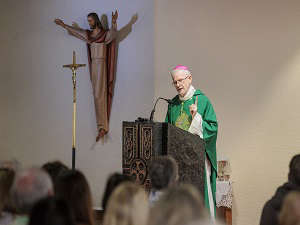 Co Down community ‘shaken and upset’ after priest attack and death of man
Co Down community ‘shaken and upset’ after priest attack and death of man
 Murder probe may be linked to ‘brutal attack’ on priest, say police
Murder probe may be linked to ‘brutal attack’ on priest, say police
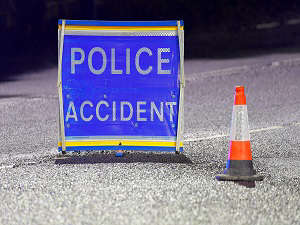 Woman and two children injured in road crash
Woman and two children injured in road crash